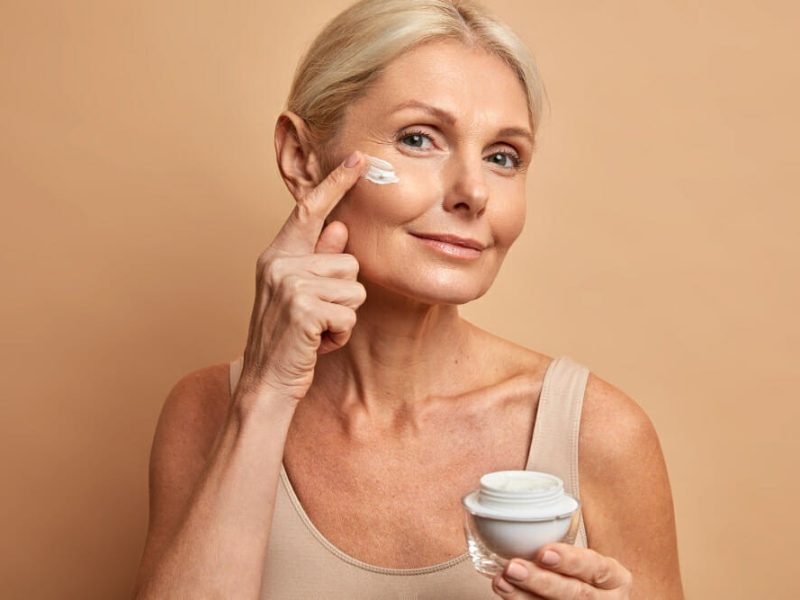In an effort to hold onto your youthful looks and achieve a glowing, natural-looking complexion, the chances are that you’ve bought into the $216.5 billion anti-ageing sector, investing products that are designed to ‘turn back the clock’.
Amongst the most common are face creams and serums, which often claim to reverse or reduce the visual signs of ageing such as age spots, fine lines and wrinkles, but do these products actually make a difference?
The truth is that the answer is not quite as simple as yes or no. Although you should always exercise scepticism when reading the possible benefits of face creams, all in all, they do typically have an impact on your skin and could help you to look and feel your best. Below, we have rounded up some of the most important things you need to know about serums…
The price isn’t important
Perhaps one of the most important things to remember about anti-ageing creams and serums is that price, in general, doesn’t matter. Don’t be tempted into that $199 cream – the chances are that the supermarket alternative does just as good a job.
Granted, premium products typically contain more of the active ingredients known to reduce the signs of ageing such as antioxidants and retinol, but if you study the ingredients between a high-end option and a cheaper alternative, you’ll likely be able to find a middle ground.
Takeaway: there’s no need to splash the cash when you’re buying serums; affordable options work just as well.
Look for products containing retinol
One of the key ingredients to look out for when buying an anti-ageing cream or serum is retinol, which is an active form of vitamin A. As our bodies and faces age, we lose vitamin A from our skin, which can result in a dull complexion and the creation of lines and wrinkles. However, retinol can reduce – or even reverse – this, as it increases cell turnover, helps to build collagen, improves discolouration in your skin, and can replenish your body’s supply of vitamin A, smoothing out those wrinkles.
Dermatologists describe the ingredient as a way to “teach your skin” how to behave younger and encourage increased skin cell turnover rates; it’s pretty magical stuff, and you’ll find a healthy concentration in most anti-ageing serums.
Results won’t happen overnight
The reality is that, whether you spend $10 on your anti-ageing cream or $1,000, results won’t happen overnight, and there’s no miracle cure to reducing the signs of ageing. Some products contain ingredients such as hyaluronic acid and caffeine which can yield superficial, short-term changes to the appearance of your face, but our advice is to be realistic when you change up your skincare routine and accept that results take time.
Dermatologists say that, on average, you should persist with a new skincare product for around two to three months before any noticeable or measurable changes will take place, as your skin needs to go through a full cycle so it can produce new skin cells. It’s only when this process has taken place that you’ll see the benefits of a particular cream, serum, or moisturiser, so be patient!
Hyaluronic acid is a godsend
When you’re working on an anti-ageing skincare routine, it’s important to find a good moisturiser to keep your skin well-hydrated and plump. Many products contain hyaluronic acid as this can plump and hydrate the skin, making it appear smoother and more youthful-looking. Remember that as we age, our skin loses moisture and water, and hyaluronic acid can help to store hydration in your skin cells. What’s more, ingredients such as retinol can really dry out the skin, so choosing a cream that contains hyaluronic acid can balance out your moisture barrier and ensure you’re not causing further damage to the skin.
Review active ingredient concentrations
Finally, it’s important to look at the concentration levels of key anti-ageing ingredients. As well as retinol, antioxidants can help protect the skin from free radical damage as well as UV damage and pollution.
Look out for ingredients such as Vitamin C, Vitamin E, green tea extract, resveratrol, or niacinamide, and make sure you double-check that they’re offered in a high enough concentration to work. Typically, retinol and antioxidants should be near the top of the list of ingredients. If they’re right down at the bottom, they won’t make a difference.
If you’re looking for another way to accelerate the anti-ageing process, consider the Oralift anti-ageing device. Unlike creams and serums, our solution offers physical and more immediate results, allowing you to turn back the clock without chemicals or surgery. The Oralift device is a small mouthguard device that is worn for short periods of time with rest breaks. On countless patients Oralift has been seen to counteract the harmful effects of ageing, rejuvenating the face in addition to other health benefits. Click here to find out more.

